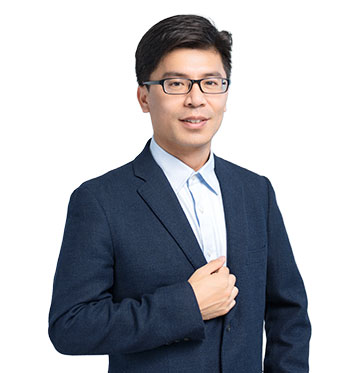
Yuxi Fu
In this installment of senior member insights, OPN talks with Yuxi Fu, a professor and deputy director for the Xi’an Institute of Optics and Precision Mechanics (XIOPM) Fundamental Research Department and Center for Attosecond Science and Technology, China. Fu received his Ph.D. at the Shanghai Institute of Optics and Fine Mechanics, Chinese Academy of Sciences (CAS), in 2010. He then moved to RIKEN, Japan, working on ultrafast and strong laser science for nine years. In 2019, Fu joined XIOPM, CAS. Now, he leads a laboratory and mainly works on attosecond science and technology.
What first interested you in pursuing science?
My major was Applied Physics during my Bachelor’s study at Tongji University, China. I was totally surprised to see optical tweezers in an experimental class, which can be used to trap and manipulate yeast cells. From that time, I was determined to pursue laser science and technology.
What aspect of your current work do you find the most interesting or exciting?
Now, I am working on ultrashort and strong laser science and technology. The most exciting thing is that the ultra-high temporal resolution up to the attosecond (10-18 s) enables us to reveal extremely fast dynamics in the microworld. It is amazing that we can explore how electrons behave and atoms evolve, which move over millions of billions times faster than our daily lives.
What tips for successful networking do you have for early-career professionals?
Scientific communication is a significant way to develop networking, which is important for early-career professionals. I will always join important conferences in various research-related topics. During the conferences, I can have discussions with researchers and make friends from various research fields. Besides, my work will also possibly help other researchers in their studies. Moreover, scientific communities are important as well and offer me more chances to enjoy excellent presentations and other scientific activities and opportunities.
How important are leadership roles in career development and how do you hone your leadership skills?
Nowadays, much frontier research needs collaborative work. Thus, organization and management of teamwork are necessary. From this point of view, leadership becomes important. I hone leadership skills by communicating with other great managers and learning from books. Besides, I frequently communicate with my laboratory members to ask for their suggestions to make myself better.
What’s the best career decision you’ve ever made, and why?
Currently, I think the best career decision I have made is that I spent over five years working on a research subject even though it didn’t bring me publications at that time. In those years, I gained a lot of skills and encountered good ideas. And finally, I accomplished important work, gained publications and got a good position, which encouraged me greatly in my career.
What skills do you think are most important for someone interested in a career like yours?
Skills in ultrafast laser development are important, which involve simulation, design, system installation and alignment.
What advice do you have for young scientists who are discouraged about their current work or career path?
We always have difficult times when we are working on a challenging or a new research topic or if we are less experienced. But almost all excellent scientists have similar experiences and walk a similar road. Once we have succeeded and are well trained, we will be the best in that research topic, which really brings us happiness and confidence.
What is one piece of advice that you wish you were given as a student/early in your career?
Learn as much as possible from books and papers and develop more skills. Knowledge, especially from various fields, helps to develop good ideas and solve problems. When we are young, we have more time and energy to learn new things and skills, which helps in our future research.
What have you learned by being a mentor to others, and what have you learned from mentors who helped shepherd your career?
I have several students now. In fact, I am very honored to be a mentor to them. I try my best to direct and help them to be great researchers. On the other hand, I also learn from my students, since they are working on quite new research subjects.
For myself, I was so lucky that I met excellent mentors. Their scientific sensitivity, great knowledge and hard work impressed me a lot. Once the research direction is determined, they will try their best to work on it with me. I learned and trained a lot during that time.
At this point in your career, what are you most looking forward to next?
Now, I have my lab and team already. In the future, we will keep challenging new research topics in ultrafast science and technology.
